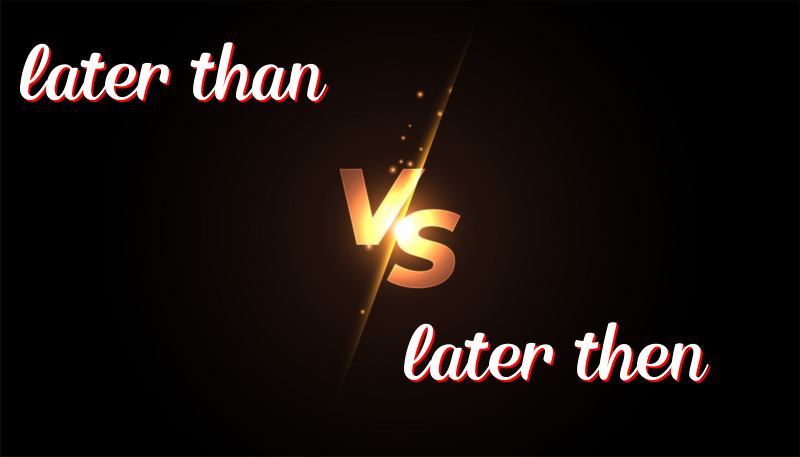Time Travel: Later Than vs. Later Then in Plain English
August 05, 2024
Later Than vs Later Then
Later Than and Later Then are two phrases that sound alike, but they are used differently in English.
History
The word Later means something that happens at a future time. Than is used to compare things. Then means something happens next or at that time.
How to Use Them
Later Than: Use this when you want to say one thing happens after another thing. It is a way to compare times. Example: I will come later than you.
Later Then: Use this when you want to talk about a time in the future and what happens after. Example: We eat dinner; later then we watch TV.
Trick to Remember the Difference
Later Than: Think of “than” as comparing times.
Later Then: Think of “then” as telling a story of what happens next.
Example Sentences
Later Than
- I will come later than you.
- She arrived later than we expected.
- The bus came later than usual.
- His homework was finished later than mine.
- They joined the game later than we did.
Later Then
- We will have dinner; later then, we will watch a movie.
- She studied; later then, she went to bed.
- The sun set; later then, the stars came out.
- The kids played outside; later then, they came in for cake.
- We had a meeting; later then, we wrote a report.
Summary
Remember:
- Later Than: Compare times (one event happens after another).
- Later Then: Sequence of events (one thing happens, then another).

Leave a Reply
You must be logged in to post a comment.